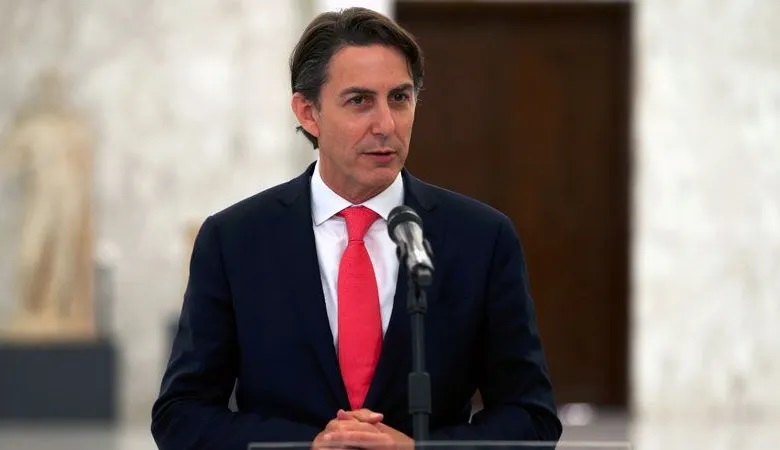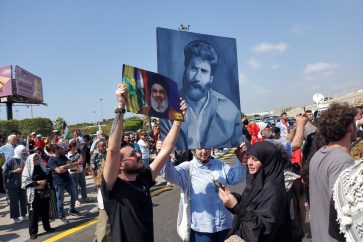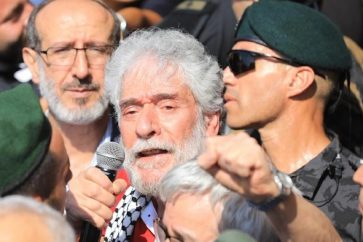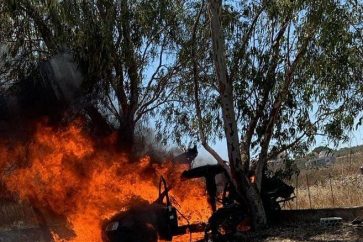‘Israel’ continues its bombing and destruction in southern Lebanon despite a ceasefire agreement, citing “secret guarantees” from the United States allowing it to maintain security and military dominance in the area, Lebanese newspaper Al-Akhbar reported on Friday.
This approach raises political tensions and concerns in Lebanon, as the slow Israeli withdrawal and damage to border villages are seen as precursors to new security conditions and political demands that will be conveyed by the US officials, the paper said via its official website.
The report continues highlighting the upcoming visit of US Special Envoy Amos Hochstein to Beirut early next year. Hochstein’s agenda includes overseeing the ceasefire’s implementation and addressing related issues, such as reconstruction and ongoing Israeli violations, which have totaled over 816 land and air attacks since November 27, the starting date of the ceasefire.
⚡️🇱🇧🇮🇱BREAKING:
A new advance by Israeli tanks and soldiers has occurred in areas of southern Lebanon that the Israeli army has not entered since 2006, such as the Wadi Hujeir region.
Israel has killed approximately 40 Lebanese people since the ‘ceasefire’ was announced and has… pic.twitter.com/lj0OvoBOfF
— Suppressed News. (@SuppressedNws) December 26, 2024
Communication between Hochstein and Lebanese officials, including Parliament Speaker Nabih Berri, led to the envoy’s agreement to visit, though he declined to attend the January 9 presidential election session to avoid appearing to interfere in Lebanon’s internal affairs.
Hochstein, the civilian chairman of the ceasefire monitoring committee, affirmed US commitment to the agreement. However, concerns persist that the US and ‘Israel’ are aligned in their approach to southern Lebanon, prioritizing building a foothold in the region made up of military and political pressure over a swift Israeli withdrawal and rebuilding process. Al-Akhbar’s sources suggest that Hochstein’s discussions will emphasize controlling reconstruction to limit the influence of Hezbollah and its allies.
“The United States of America will continue to sponsor the agreement and work to fully implement it,” Hochstein assured. Yet, political sources indicate that the US may pressure Lebanon to manage the reconstruction process strictly under American and Israeli terms. Restrictions on reconstruction materials and efforts aim to weaken Hezbollah by impacting its operations and security access in the south, according to the report.
“Rejecting Any Iranian Role”
A critical issue in Hochstein’s visit will be the rejection of any Iranian role in Lebanon’s reconstruction, whether through companies or aid. The US reportedly intends to prevent the leakage of funds that could bolster Hezbollah, with Hochstein set to stress Lebanese government’s responsibility to manage the file exclusively. Political observers fear this approach could escalate tensions, as it risks linking reconstruction aid to broader western demands, such as the implementation of UN Resolution 1559, which calls for the disarmament of “militias”, referring to Hezbollah.
“The US is in complete harmony with the Israeli enemy in what it is doing in the south,” a source told Al-Akhbar, adding that the next phase might see increased pressure on Lebanon to align with US and Israeli objectives. Washington and Tel Aviv view the current regional context, including developments in Syria, as an opportunity to combine military actions with political leverage.

The reconstruction file, considered a priority by Hezbollah and its allies, is also central to the US and Israeli strategy. According to sources, “Washington may link all political files to the reconstruction file, including the election of a new Lebanese president and the appointment of a prime minister.” The implication is that reconstruction aid could be contingent on Lebanon’s agreement to terms set by the US and ‘Israel’.
Political circles warn this strategy could amount to a “declaration of war,” as it ties essential rebuilding efforts to contentious political concessions, according to Al-Akhbar. It is highly likely the US will further insist that Lebanon curb Hezbollah’s presence across the country, not just south of the Litani River. Lebanese officials familiar with these dynamics see a broader strategy to pressure the government into disarming Hezbollah as part of a larger plan to achieve, per the American President-elect Donald Trump’s words, “permanent peace”. A peace that favors Israel’s agenda in the region, maintaining its image as the most heavily armed “bogeyman” in West Asia.
With Hochstein’s visit looming, Lebanon faces critical decisions amid mounting external pressures. The balance between adhering to international demands and maintaining national sovereignty and stability remains a key challenge for the Lebanese government and its people.
Source: Al-Akhbar newspaper (translated and edited by Al-Manar English Website)




